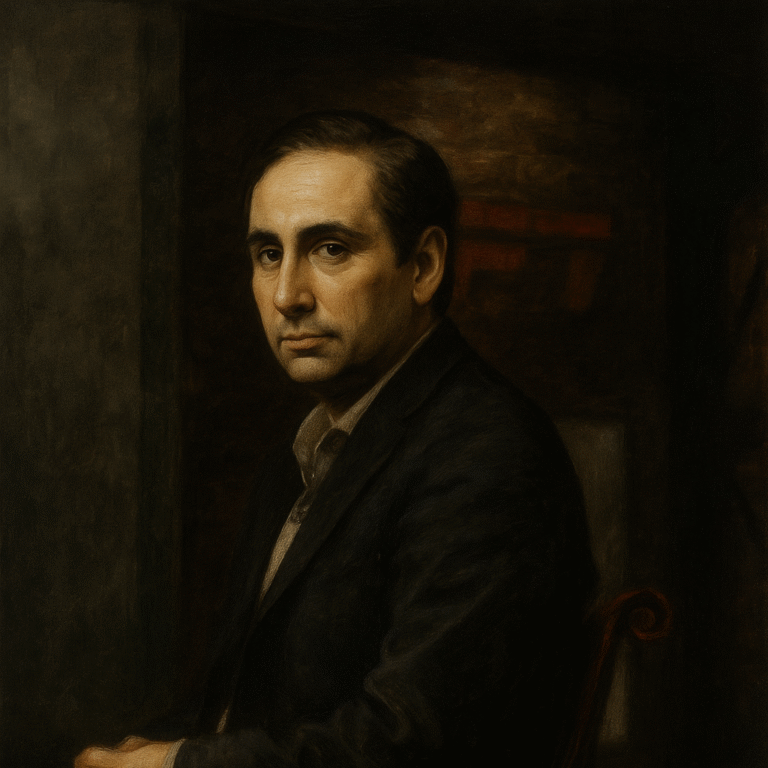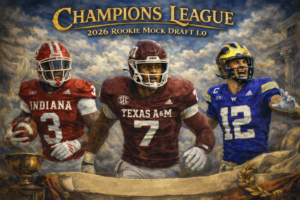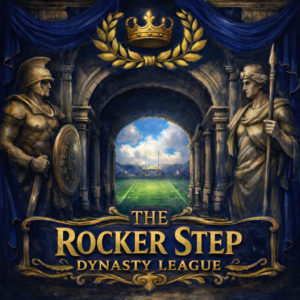004 // Zach Lowe, ESPN’s Identity Crisis, and Basketball’s Fifth Estate

//
In a move that somehow felt like both a seismic shift and a formality, Bill Simmons and Zach Lowe finally stopped flirting and made it official: The Zach Lowe Show is live. Our prodigal son returns, having somehow consumed more League Pass on sabbatical than he did with an awards vote. Incredible.
For anyone who cares about the NBA more than your token ClutchPoints casual, this is a rather big deal. The Romulus and Remus of drop coverage discourse—reunited to turn third banana rankings into NPR for guys who still swear they could’ve walked on.
Lowe’s arrival at The Ringer signals more: we’ve just watched a monumental shift in basketball plate tectonics quietly slide into place:
The center of NBA media gravity has finally moved off-campus. The smartest voices in basketball no longer work for its biggest partner. Because ESPN isn’t a network anymore—it’s a vending machine for paywalled live rights and reheated segments.
*Sidebar: Zach, you have far too convenient a name for this. A few on the house:
- The Lowe Notes
- The Lowe End Theory
- The Lowenly Stoner
- The Zane Lowe Show on Apple Music 1
To many, Lowe is the best pure basketball writer ever. Certainly the best that ESPN has ever employed. For years, they buried his talent on six-wide daytime panels and ran his podcast on what felt like a $20/month budget.
When they laid him off—along with most of the remaining editorial core—it wasn’t streamlining. It was surrender. The endpoint of a decade-long gutting of everything ESPN pretended to champion: smart writing, narrative context, anything not sponsored by a Kellogg product. What’s left now is Planet Fitness background noise. Cortisol cosplaying as conversation.
Make no mistake: ESPN didn’t just lose a writer. It severed a limb. 127 Hours-style.
Lowe and Simmons are the direct forefathers of what now passes as elevated basketball discourse. Grantland—the rebellious, experimental, occasionally navel-gazing outpost ESPN never quite knew what to do with—is the reason anyone talking TS% today gets to feel more Brad Pitt than Jonah Hill. It taught a generation that understanding why is more compelling than yelling about what.
Simmons has always been the ultimate chaos agent—sniping, scrapping, getting suspended. But crucially, he nurtures. He curates brilliant weirdos who talk ball like they’re reading from a diary stitched together from Basketball Reference and groupchat replies. In that light, Lowe’s return isn’t just a reunion. It’s a reclamation.
The talent ESPN cultivated—but tried to keep quiet—has come home to where it was always loudest. From Mallory and Big Wos to Curtis, Barnwell, and Mays, the loop is clear: ESPN bottles the spark. The Ringer breaks the glass. At least until someone else poaches them.
They didn’t just let Zach walk. They fired the one guy who could explain why a random Tuesday loss might actually matter. Lowe made you care about second-quarter Charlotte rotations in January. He didn’t sell takes. He translated meaning. That’s not streamlining. That’s cultural malpractice. Like trading a 25-year-old generational superstar to play hardball with the Texas state legislature.
With Disney and Fox racing to reinvent cable as à la carte, anyone indispensable to that business model is expendable. Efficiency eats identity.
Sidebar: If monthly paid subs are the North Star, maybe—just maybe—consider why half the internet now happily sends $8 a month to a guy named Tyler posting Kyle Filipowski clips to ambient jazz.
So what happens when the last good writing disappears? A new church is built.
That’s what The Ringer has become, alongside the proliferation of D2C, niche creator communities unshackled from focus groups and the Dallas Cowboys Industrial Complex. A shrine to a specific way of thinking about sports: curiously, comedically, obsessively. The stuff ESPN once allowed by accident, now the selling point.
If Grantland died in a Bristol boardroom, then The Ringer is its ghost narrating your commute. Mind the Game is doing K-pop numbers. Emergency pods have become a genre. Of course Erykah Badu over Paul George isos goes viral. It’s not just podcasts and TikTok trends. It’s video essays. Discord servers. Burner accounts with better takes than half the awards body. It’s Darius Garland breakdowns posted at 2 a.m. with 11k views and 145 comments—half of them starting with “real ball.”
Basketball discourse didn’t die. It decentralized. And it damn sure doesn’t come from ESPN anymore.
ESPN had all the pieces to own this new world, then the suits started thinking of talent as a cost center instead of a differentiator.
Almost overnight, Lowe became an overpaid, archaic line item.
In trying to manufacture the future and sports streaming space race, they abandoned the people building it. All while doubling down on a D2C model for a generation watching on bootleg streams.
But that talent doesn’t fade into radio purgatory anymore. They become brands: self-sustaining, communally parasocial, and platform-proof.
If Theo Ash were born in 1985, his dream would’ve been to host *NFL Live*. Now? That’s a step backward.
Simmons saw it early. That podcasting at its best isn’t just a format—it’s a lens. A living archive of thought with just enough digression to feel human.
This is why Lowe’s move matters. Not nostalgia. Realignment. Towards what isn’t screamed, SEO’d, or Frankensteined for an audience that doesn’t even like basketball. To what ESPN is now rid of: a willingness to be wrong, to be heard out, to be convinced. A refusal to pretend every segment has to end like a UFC decision.
The signal’s moved on—to Patreons and livestreams and 2x-speed obsessives. To the people who maybe don’t even watch College Gameday. The future of basketball media isn’t broadcast. It’s broadband.
The smartest people left the building—and took the signal with them.
The network isn’t the source.
It never was.
//
Related Posts

Champions League: 2026 Rookie Mock Draft 1.0
The 2026 rookie class is deeper than consensus suggests, with quarterback volatility at the top and wide receiver depth reshaping the mid-first. TRS Insiders break down the intel, the tiers, and a full first-round mock as draft season accelerates.

The Rocker Step Dynasty League Draft Recap
First-round quarterbacks swapped, elite veterans slid into unexpected ranges, and future rookie capital was leveraged early and often.

